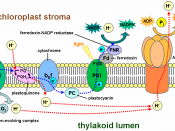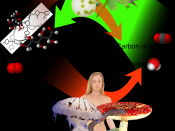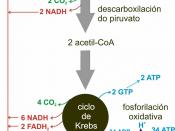Chemical reactions in living things
MRS GREN
M movement - Find food, escape predators
R respiration - Getting energy from food
S sensitivity- Detecting change in surroundings
G growth - All things grow
R Reproduction- New generations
E Excretion- Getting rid of waste
N Nutrition- Taking in and using food as energy
Cytoplasm
Biological chemical factory
Reactions occur- growth, repair, copy, break down large food molecules (to release energy for respiration
ENZYMES ARE PROTEINS THAT SPEED UP CHEMICAL REACTIONS IN OUR CELLs
Made up of long chains of amino acid
Enzymes are chemical that speed up the rate of reaction (but is unchanged)
THEY HAVE ANOPTIMUM TEMPERATURE
RAISED HEAT= QUICKER REACTION
OVER 60î = PERMANENT CHANGE
Enzymes are a biological catalyst designed to bring on and speed up reactions
One enzyme= one job
Enzymes are specific
How do they work?-
1). Enzyme has active site
2). only one correct molecule fits (substrate molecule)
3). Reaction takes place in active site
4). Product leaves, enzyme used again
Why do we need enzymes?
To speed up our bodies chemical reactions, without them it would be too slow and we would die. Increasing the temperature would mean we would need to respire more and eat more food to respire consequently we rely on enzymes to give us a quick rate of reaction
Why are they sensitive to PH?
Enzyme activity depends on substrate protein being able to fit
Each enzyme has optimum PH
At other PH s structure of active site changes
No longer fits
Certain point
Permanently
DENATURED
Active transport
Transport nutrients and waste
Door way to cell
From lower to higher concentration
Input of energy from cell
Carrier proteins pick up specific molecules
How plants make food...


